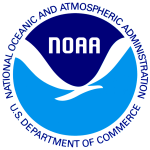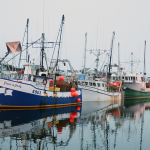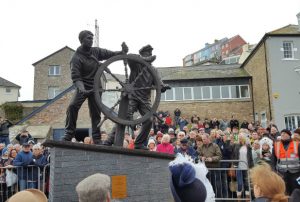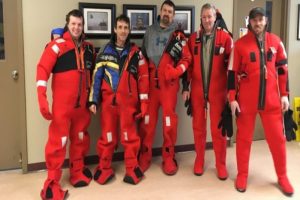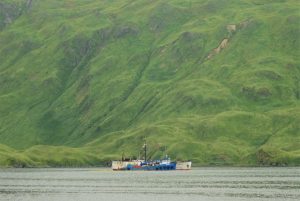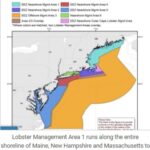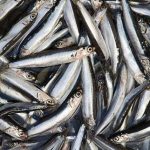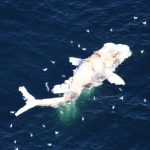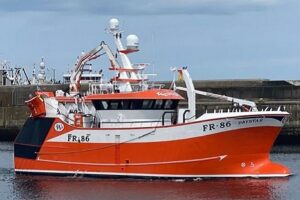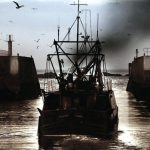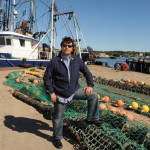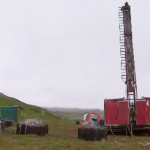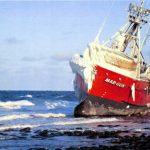Monthly Archives: February 2018
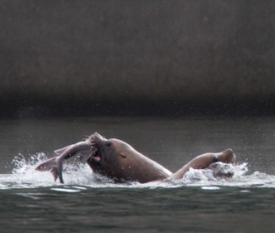
New sea lion wrinkle in the Willamette River threatens sturgeon
Oregon biologists attempting to save the Willamette River’s sharply declined winter steelhead run are facing a new twist in their vexing battle against fish-hungry sea lions at Willamette Falls. The river has seen an unusual influx this winter of large, sturgeon-eating Steller sea lions. Anglers from the falls to the Portland harbor report watching the carnage. “Sturgeon are on our radar,” said Shaun Clements of the Oregon Department of Fish and Wildlife. “We have seen up to 10 Steller sea lions at the falls, which is more than typical.” >click to read<18:24
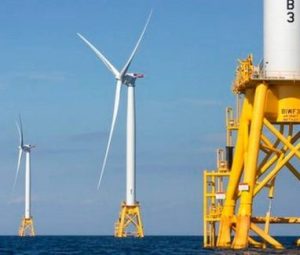
What Does the Jones Act Mean for Offshore Wind?
The Block Island Wind Farm, a 30-megawatt wind farm located just off the coast of Rhode Island, began operations in December 2016, fulfilling the goal of the project’s developer, Deepwater Wind LLC, to build America’s first offshore wind farm. The Block Island Wind Farm consists of only five wind turbines and is tiny in comparison to the large offshore wind farms operating off the coasts of Europe, but Deepwater Wind is planning larger wind farms off the coasts of New York, Massachusetts, Rhode Island, Maryland and New Jersey. Other developers are doing the same with other projects up and down the East Coast of the United States. >click to read< 14:37
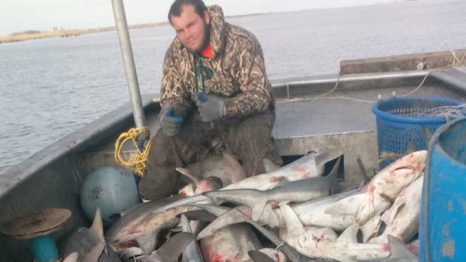
Des Allemands father, son saved from drowning in the Mississippi River
Whitney Curole is a firm believer that the rescue of he and his son from the freezing waters of the Mississippi River is nothing short of a miracle. “I knew when the first big wave came over the boat … I knew it couldn’t take that much water,” Curole said…. Just as he had so many times before without incident, Curole was riding the “ship waves” toward a dock in Venice at about 4:30 p.m. last Tuesday to sell the sharks they caught there. Suddenly, his 27-by-9-foot aluminum flat boat went down on a wave, but was over topped by water of the next wave instead of bouncing back up as expected. >click to read<13:46
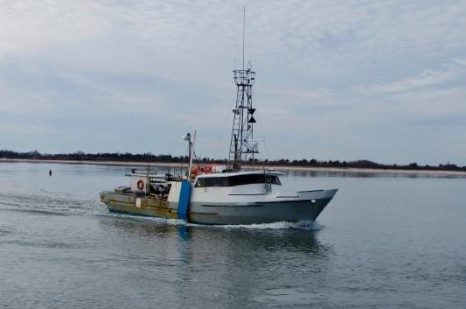
Athearn Marine Agency Boat of the Week: 65′ Blount Marine Steel Longliner, 400HP Iveco with Federal Permits
Specifications, information and 6 photos >click here< To see all the boats in this series, >Click here<13:27
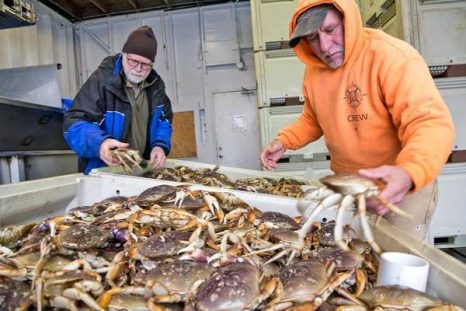
Slow crawl for crab: Seasonal delays stifle coastal economy
Price strikes, delays and poor weather have plagued the 2017-18 Dungeness crab season from the start. Roughly four weeks into the season, landings for the non-tribal coastal crab fishery in Washington were 5,574,792 pounds, only about 60 percent of the total catch during the first weeks of 2016-17 season. “It’s clear this season we are behind,” Dan Ayres, coastal shellfish manager with the Washington Department of Fish and Wildlife, said upon seeing the first official numbers of the season on Friday, Feb 16. >click to read<12:35

Victoria Nuland speaks about her experience of living with 80 Russian fishermen on one boat
American diplomat Victoria Nuland said that she could understand Russian culture better after she had worked with Russian fishermen for six months. The reason for the story was a video posted by Aleksei Navalny, in which Russian Deputy Prime Minister Sergei Prikhodkov said to businessman Oleg Deripaska that he considered Victoria Nuland a friend, even though she had an aversion to Russia for living with Russian seamen on a fishing boat for six years in her 20s. According to Nuland, a joint US-Soviet enterprise allowed American sailors to fish in the 20-mile zone and deliver the catch to Soviet sailors, who were not allowed to fish in that part of the sea,” the diplomat said. >click to read<11:59
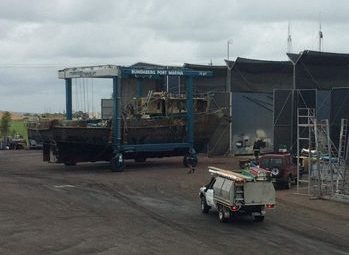
F/V Dianne Recovery: Specialist teams ready for investigation
THE MV Dianne has now been transferred to dry land. Crews worked for most of today to correctly balance the fishing trawler on to a travelift so it could be moved from the oceanfront of the Bundaberg Port Marina. It is now on land and in a secure location. The Queensland Fire Service scientific team and urban rescue team will examine the safety of the vessel first thing tomorrow morning before investigations commence. Specialist teams, including a disaster victim identification team, are on standby as part of investigations surrounding the MV Dianne’s tragic sinking in October last year. >click to read< 10:32
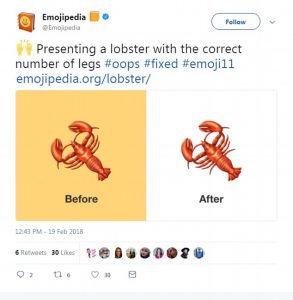
Lobster emoji is redesigned after backlash from crabby Maine residents
The company responsible for making new emojis had to change the design for their lobster after an outcry erupted over the number of legs it had. Unicode Consortium announced Wednesday that the crustacean emoji would be a part of the new 157 emojis, slated to be released later this year. But Maine residents soon had issue with the image’s eight legs, because lobsters have 10. ‘Sen. Angus King from Maine has certainly been vocal about his love of the lobster emoji, but was kind enough to spare us the indignity of pointing out that we left off two legs,’ Emojipedia wrote. >click to read< 09:51
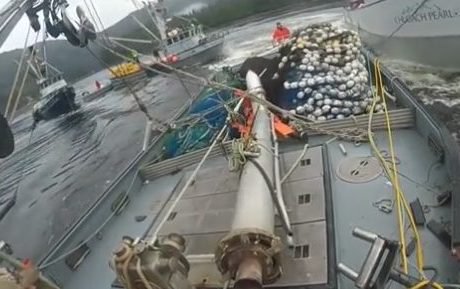
Boat warfare
Even in a state famous for it fish wars, a violent collision between three commercial-salmon fishing boats in Prince William Sound that left a crewman seriously injured in the summer of 2016 has attracted more than its share of attention. But then most Alaska fish wars don’t deteriorate into actual boat-to-boat combat.,,, Court documents early on, however, revealed there was a GoPro camera on board the Temptation when the collision occurred, and now some of that video has emerged. >click to read< 08:01

Man Gets 56 Months for False Distress Calls, Threats to Coast Guard
A 39-year-old Newport News man was sentenced in Norfolk federal court on Tuesday to 56 months in prison for making a false distress call and threats to the U.S. Coast Guard, officials said.
Justin P. Stahmer was convicted of the crimes by a federal jury on Nov. 13, 2017, according to a U.S. Department of Justice news release. Court documents state that Stahmer made a false distress call on June 20, 2016 while several miles northeast of Cape Henry. >click to read<07:20

Simple fix for winch injuries not being used by seiners; Experts want to find out why
The most common gear on a seine boat is one of the most deadly – the rotating capstan winch used for winding ropes. Here’s a sampler “The deck winch is the most powerful thing on the boat. It’s the scariest piece of machinery that we work with.” “The corner of my raincoat caught under the capstan and started wrapping around. It snapped my head back and broke my neck.”,,, A simple E-Stop device has been available for over 10 years to prevent winch injuries. >click to read< 17:23

Alaska, West Coast to receive fishery disaster recovery funds, unclear when
The president signed a bill this month that directs recovery funds to fisheries disasters on the West Coast, including in Alaska, but it’s still unclear how the limited funds will be distributed. In a letter to the U.S. Senate in January, senators wrote that they saw a $150 million need in Alaska following the 2016 pink salmon season disaster in the Gulf. They also identified a $140 million need for the fisheries disasters in California and $117 million for those in Washington State.,, “There’s only $200 million that has been identified for all nine of these disasters,,,, >click to read<15:39

Washington senator wants B.C. to follow suit and phase out net-pen fish farms
A Washington senator says he wants to see British Columbia join the state in phasing out ocean-based Atlantic salmon farms when the province decides whether to renew farm leases in June. An American ban will be less effective in the shared ecosystem of the Salish Sea if fish farms continue to operate in Canadian waters, said Democrat Sen. Kevin Ranker. The Washington state senate and house of representatives have recently passed bills that would phase out net-pen farms when their leases come up for renewal over the next seven years. >click to read<14:06
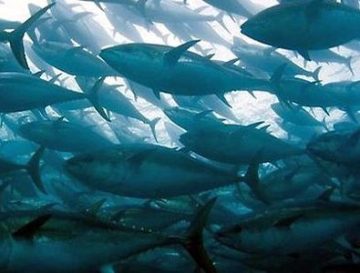
Study finds tuna fishermen who fish along ocean fronts can significantly boost revenue
These oceanographic conditions are more complex than simply being warmer temperatures, said James Watson, an OSU marine ecologist and lead author on the study. Their technical name is Lagrangian Coherent Structures, though scientists often refer to them as “the skeletons of the sea.”“Essentially they are physical ocean fronts where surface waters converge,” Watson said.,, “What we’ve found is that the stronger the convergence, the more likely it is to attract certain things, beginning with the aggregation of phytoplankton, which in turn attracts larger organisms like tuna – and, ultimately, tuna fishermen.” >click to read<12:25

California crabbers concede 25 cents
Local commercial Dungeness crab fishermen return to their trade today but will receive 25 cents per pound less for their catch than when they started the season earlier this month. Following a meeting on Monday, crabbers in Brookings, Crescent City, Trinidad, Eureka and Fort Bragg agreed to resume fishing on Tuesday, said Rick Shepherd, president of the Del Norte Fisherman’s Marketing Association. Seafood buyers are now paying fishermen $2.50 per pound, Shepherd said. “We’re trying to hold that $2.75, but we don’t know how long we’d have to sit to do it,” he said. “There’s not much else we can do.” >click to read<11:07 
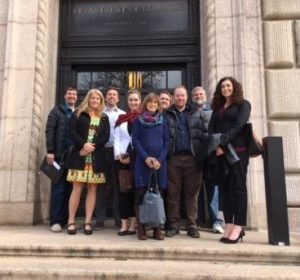
Alaska Fishing Delegation Heads To Washington
Representatives of the Alaska Longline Fishermen’s Association and the Alaska Marine Conservation Council– both members of the nationalFishing Communities Coalition (FCC) – were in Washington, DC, this week urging lawmakers to resist shortsighted efforts to weaken fishing communities by undermining key Magnuson-Stevens Act accountability provisions.,,, “The MSA is working in Alaska and around the country because all sectors adhere to scientifically-sound annual catch limits. >click to read<09:54
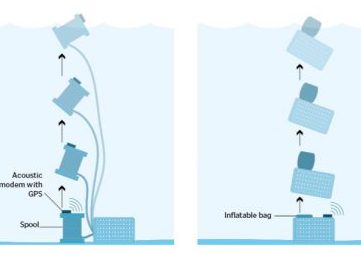
To protect right whales, scientists propose major changes for lobstermen
Without prompt action to reduce entanglements in fishing lines, North Atlantic right whales could disappear from the planet over the next two decades, scientists say. In response, scientists here on Cape Cod are proposing a novel way to save the species — one that many New England lobstermen fear could destroy their livelihoods.,,, In one method, the signal would inflate a spool filled with rope that ascends to the surface, allowing the lobstermen to haul their traps similarly to how they do now. In the other, the signal would activate inflatable bags attached to each trap or at the end of the trawls. >click to read< 08:45
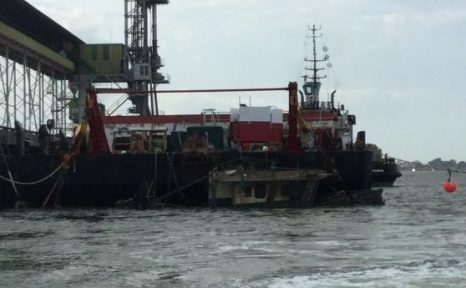
Recovered: Sunken fishing trawler Dianne to be lifted on to land
A fishing trawler in which six men died last year will be lifted on to land four months after it sank off the Queensland coast. The FV Dianne was partially raised last Monday, and crews towed it to the Port of Bundaberg on Friday where it will be lifted on to land on Tuesday for further investigation into why it sank. Water will be pumped from the boat as authorities prepare to lift it out, with poor weather hindering several attempts to bring the wreckage to shore. >click to read<23:22
DIANNE RECOVERED: Bodies may be inside ill-fated trawler – >click to read<

Oregon Senate Passes Seafood Bill – would require more frequent testing of acid levels
After recreational crabbing along the southern Oregon coast was closed last week due to domoic acid levels, the Oregon Senate has now passed a bill aimed at better pinpointing where these toxins are flourishing. The bill will now go on to the state House of Representatives for consideration. Under current conditions, whole crabbing regions have to be shut down in order to ensure safety. The bill would require more frequent testing of acid levels, so that affected areas could be more easily identified—and, ideally, these areas of closure would be much smaller in size.,,, Commercial crabbing season has been delayed due to a combination of factors. >click to read< 18:48
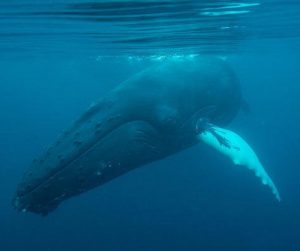
Seismic Surveys Planned Off U.S. Coast Pose Risk To Marine Life
Animals that live in the ocean communicate with sound — humpback whales, for example. But these voices could soon be drowned out by powerful sonic booms from vessels searching for oil and gas. President Trump is opening up the Atlantic Coast to companies to explore for fresh reserves. And to explore, they will be making some of the loudest sounds ever heard in the ocean — sounds that, according to recent research, could harm marine animals from whales to plankton. Five companies are currently applying for permits to use seismic air guns,,, >click to read< 14:18
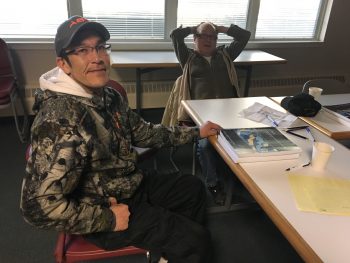
Kodiak: Fishermen aspire to enter world of seafood processing
For some fishermen, moving into the processing world is one way to build their prospects. But before that can happen, they need to get the required certification. A few seafood processors and would-be processors are doing that right now in the City of Kodiak. They’re taking a two-day Hazard Analysis Critical Control Point or HACCP class, which covers possible seafood hazards. It’s one of a handful of classes Alaska Sea Grant holds annually around the state. >click to read< 12:13
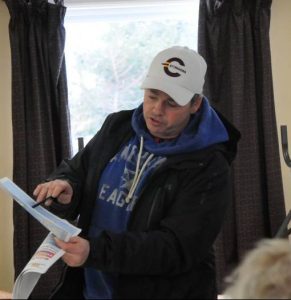
Fogo Island fish harvesters meet with DFO, Finally!
The third time was the charm for the Department of Fisheries and Oceans (DFO) session with fishermen on Fogo Island. The meeting was cancelled twice because of weather and department members being unable to attend. The meeting finally went ahead on Feb. 13 with approximately 30 area fishermen in attendance. When talking about concerns in the fishery, they held nothing back – which is exactly what Ron Burton, area director for DFO, was looking for. >click to read< 11:50
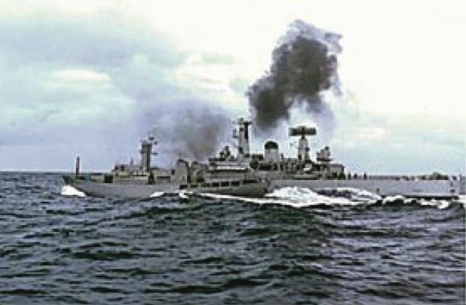
This Day In Icelandic History: The First Casualty Of The Cod Wars Strikes
1976 was the year the Cod Wars between Iceland and Britain ended, but it was not without at least one casualty. The Cod Wars comprised a series of conflicts between Iceland and Great Britain over the use of fishing waters in the North Atlantic. Clashes between the two nations were, for the most part, bloodless. British warships and Icelandic trawlers would get intimidatingly close to one another, sometimes even ramming one another, but for much of the time the conflict was diplomatic. All that would change on February 19 of 1976. >click to read< 10:11

Cuomo’s Curse: Wind Power Obsession Leaves New Yorkers with Rocketing Power Bills
If wind power really is cheap and getting cheaper all the time, why is it that every State or Nation ‘powered’ by the weather is suffering power prices magnitudes higher than those that continue merrily chugging away on coal, gas or nuclear power?.,,, Since 2015, Gov. Cuomo has been hyping his scheme to remake the state’s electric grid so that by 2030 half of the state’s electricity will come from renewable sources.,, To protect their interests, fishermen and fishmongers from New York, New Jersey, Rhode Island and Massachusetts have filed a federal lawsuit,,, >click to read< 09:02

Canada to introduce mandatory reporting of whale interactions this year
“Save the Whales” will take on new importance for Canadian fishermen in 2018 as the Department of Fisheries and Oceans introduces mandatory reporting for interactions Canada’s commercial fishing fleets have with marine mammals. The deaths of a dozen critically endangered right whales in the Gulf of St. Lawrence last year is the driving force behind the effort, which has already resulted in changes in the Gulf of St. Lawrence snow crab fishery, whose gear has been implicated in some of the deaths. >click to read<08:18
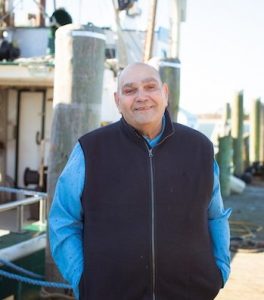
Deepwater Wind Hires New Fisheries Liaison, Continues Search for Long Island Fishery Representative
Deepwater Wind’s new Fisheries LIaison, retired commercial fisherman Rodney Avila of New Bedford, Mass., will be on the East End all week meeting with potential independent fisheries representative candidates for the South Fork Wind Farm off of Montauk, while the East Hampton Town Trustees have issued a detailed set of requests for Community Benefit Projects they’d like to see Deepwater Wind fund on behalf of fisheries here. Deepwater Wind, the developers of the first U.S. offshore wind farm off Block Island, is planning to build,,, >click to read< 21:27

SMU students hoping to save whales with ropeless fishing gear
A trio of graduate students at Saint Mary’s University is building a fishing gear prototype that could help lobster and crab fishermen save money by reducing lost traps and save whales and other marine life from becoming entangled in ropes. Ross Arsenault and Aaron Stevenson are in the two-year masters of technology entrepreneurship and innovation program, while Maxwell Poole is taking a masters of applied health services research.,,, Then, the students heard about the crisis facing the endangered North Atlantic right whale, which was dying in record numbers in Canadian waters last year. >click to read< 18:28

The Shutdown
The National Marine Fisheries Service shut down Sector IX because the majority of its boats and quota belong to Carlos Rafael. This came without warning last November 22 and the order also waived the customary 30-day delay in effectiveness. Far from resolving anything this has exacerbated a bad situation by throwing a widening circle of business owners under the bus as the weeks drag by. >click to read< 15:38
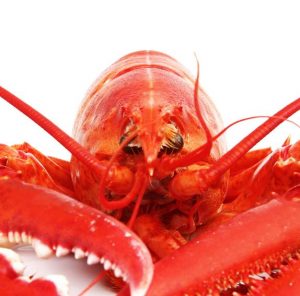
Crustacean Placation Nation
The Swiss are worried about lobsters. They are concerned that lobsters are sentient and can feel pain. So, if you want to eat a lobster in Switzerland, you can’t drop it, live, into a pot of boiling water, which is the preferred cooking method in Maine and other lobster-loving states. Instead, according to this article in USA Today, you need to either electrocute the lobster, or lull it into an insensate state by dipping it in salt water — and then stabbing it in the brain. I’m not sure, frankly, why those methods are viewed as more humane than,,, >click to read<12:54



































